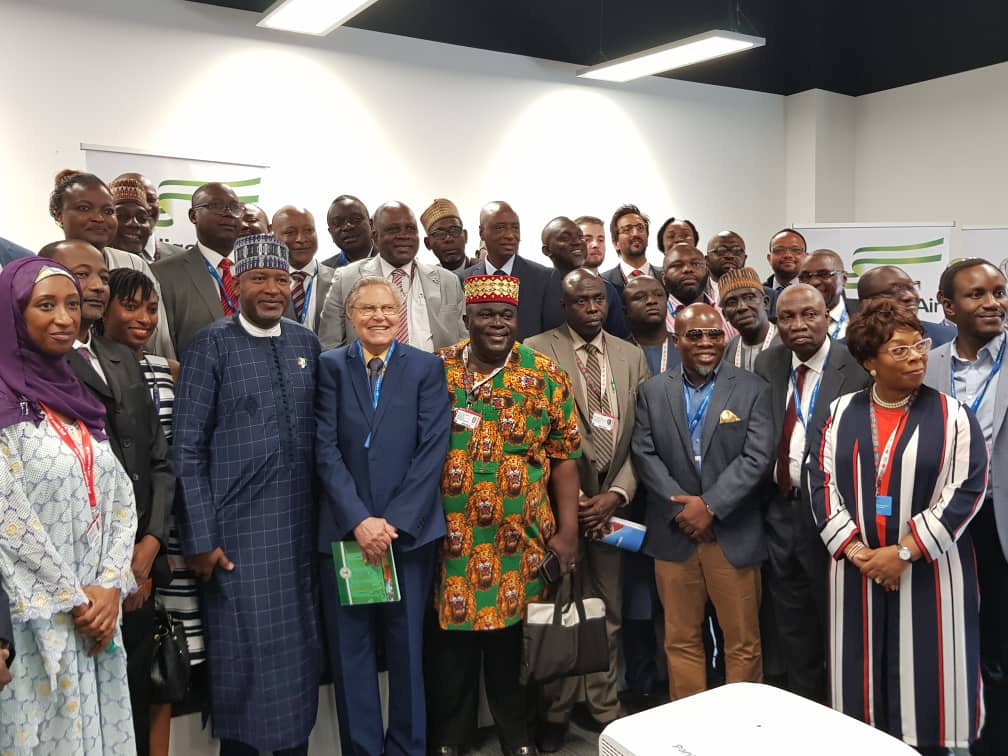
Many Nigerians are excited that Nigeria will soon establish a national carrier, which will be a major airline to compete with mega carrier of the world, but others with hindsight are circumspect, sceptical that the Nigerian government has never spearheaded a successful airline, writes Chinedu Eze.
The gains of a national carrier are invaluable. A successful national carrier will be the fulcrum of aviation development of the country. It will bring a balance to the lopsided bilateral air service agreement, which Nigeria has been signing to its disadvantage since the demise of the Nigeria Airways Limited (NAL).
It will take over from the Ministry of Transportation the negotiation of commercial agreement between foreign airlines and Nigeria and it will also reciprocate flights to some countries whose airlines operate to Nigeria.
This will help to bring down the fares; it will improve passenger service as competition will force airlines to give the best to the passengers in order to retain their patronage.
A national carrier will attract respect for Nigeria in the comity of nations and it will serve as an ambassador for the country and carry out critical duties for government. For example, the Nigerians who travelled to Moscow to watch the world cup and were stranded because of issues with their return ticket were airlifted back to Nigeria by Ethiopia Airlines. If Nigeria has a national carrier, government would have dispatched a flight to Moscow to bring back the Nigerians.
There are other gains of a national carrier. It enhances the training of skilled workforce in the aviation industry. For example, when a pilot leaves the Nigerian College of Aviation Technology (NCAT), Zaria with commercial pilot license (CPL), he will need to type-rate on one aircraft type. Usually the national carrier provides the platform.
Industry observers recall that most Nigerian pilots and engineers were trained by Nigeria Airways. When the airline went under, the number of Nigerian pilots began to deplete as new ones were not being trained. The old ones aged and went into retirement. Besides, many of them sought better working conditions overseas and left the country, forcing Nigerian airlines to employ expatriates at exorbitant and outrageous remuneration.
The New National Carrier
The name Nigeria Air was unveiled as the name of the airline on Wednesday. The Minister of State, Aviation, Hadi Sirika said by December this year the national carrier would come on stream. By December 19, 2018 the first five aircraft that would be operated by the airline would arrive and its operations will start off.
Sirika said $8.8 million would be spent in berthing the airline and $300 million as take off cost. He said that the airline would be private sector driven, as government would have only 5 per cent share. The airline would start with initial 81 routes already identified.
At the unveiling of the airline logo and name in Farnborough, UK, Sirika described the unveiling as an important thing for Nigeria, “which has largest economy in Africa, largest population with a GDP of about half a billion dollars and the only true aviation player in West and Central Africa.”
He said that Nigeria has unfortunately not been a serious player in aviation for a long time.
“We used to be a dominant player, through Nigeria Airways, but sadly not anymore,” he said.
Private Sector
Sirika stressed that the new national carrier would be driven by the private sector “because it is a business, not a social service. Government will not be involved in running it or deciding who runs it. The investors will have full responsibility for this.”
He explained that the Nigerian government would not own more than 5 per cent (maximum) in the new airline, adding that government would not be involved in running it or deciding who runs it.
“We’ve been talking to Airbus and Boeing regarding the aircraft for Nigeria Air, and we will be making announcements very soon. We are currently negotiating,” he said.
The Minister also explained the choice of going to Farnborough to unveil the national carrier, saying that Farnborough is one of the biggest Airshows in the world, where decision makers and industry experts gather every two years to do business.
“The new national carrier will bring Nigeria closer to the world,” he said.
Doubts
As at the time the name of the airline was unveiled on Wednesday, the new airline does not have operational office anywhere in Nigeria. It has not recruited any personnel and there is no structure so far to indicate that a new airline is starting off.
The Minister said that the new airline would be private sector driven but he did not explain the equity of the airline. He has not made it clear that the airline would have core investor or technical partner but government has been talking to Qatar Airways since 2016 about the airline.
On Tuesday July 16 and Wednesday July 17 at Farnborough, the Minister had discussion with the CEO of Ethiopia Airlines, Tewolde Grebremariam on partnership with the national carrier.
Industry insiders said that this means that government is yet to secure a technical partner for the airline and they also asked, if the airline would be private sector driven why is the Minister discussing with aircraft manufacturers single-handedly without involving other investors.
The Chairman of African Business Aviation Association (AfBAA) and former Secretary General of African Airlines Association (AFRAA), Mr. Nick Fadugba said that there are many unanswered questions in terms of the management, funding and fleet of the new airline.
Fadugba who is the CEO of African Aviation Services noted that as it stands government is already de facto owner of both Aero and Arik through the Asset Management Company of Nigeria (AMCON) and wondered how it would manage these airlines and at the same time establish a new national carrier.
He said Nigeria Air ought to have a synergy with other carriers so they can better harness the huge international market,
“There are many questions that need to be answered in terms of the management, the funding and the fleet. So, I believe the government needs to brief the Nigerian people on the national carrier. Rather than doing it abroad, we need to come home and explain to the whole nation what the concept is.
“More importantly, I am interested in how the national carrier interfaces with all the other airlines in Nigeria. Because remember that the government is the de facto owner of two other airlines: Arik and Aero. So, this is the first time I have seen one government own three airlines. Government needs to coordinate its airlines strategy in terms of moving forward,” Fadugba said.
Opaque
While many Nigerians are looking forward to see the national airline take off to the skies, government has not disclosed the investors that are putting money in the airline. It has not disclosed how the airline would go through the process of obtaining Air Operator Certificate (AOC) or is that going to be a work over?
There are five processes for granting of AOC to any airline. These include pre-application phase, document compliance phase, which involves certification team reviewing applicant’s documents for compliance acceptance/approval.
This is followed by demonstration and inspection phase, then the certification. The next is whether the airline has sufficient personnel with the required experience. This, industry experts say, takes minimum of six months. As a new airline, it must have its own manuals and preparing and approving manuals could take about three months. Before it is granted AOC it is expected to operate flight without passengers for 50 hours.
Nigeria Airways Pensioners
Unions in the aviation industry have threatened to truncate the birth of the new national carrier over the failure of the federal government to settle severance payment of the ex-Nigeria Airways workers.
The unions said they doubt the sincerity of the federal government on the new national carrier.






